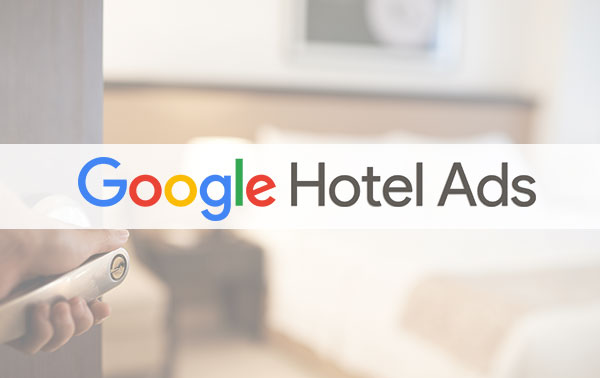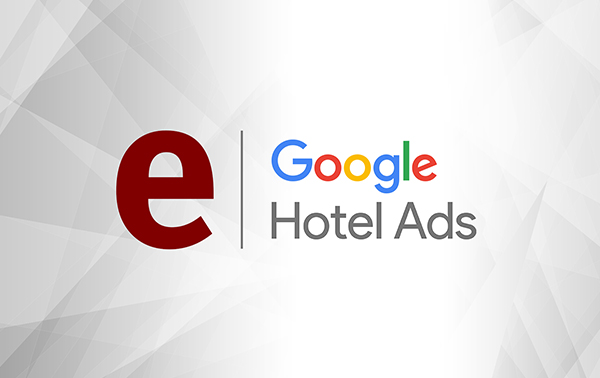helpdesk: 365 days a year
from 8:00am to 8:00pm
We have already spoken about Google Hotel Ads, how it works in detail and what benefits it brings to hotel managers in this article. Summarizing: with the new Google service hotels can upload their website / Booking Engine rates inside the Google tab, along with portal rates to induce the user to book directly thanks to the advantage of the hotel’s official rates compared to OTAs. The result?
More direct bookings and higher profits - if you use a commission free booking engine, like Ericsoft's.
Hotels are often forced to rely on external agencies to manage their Google Hotel Ads campaigns. To the budget invested on Google they will also need to add the agency’s fee, which is going to increase the total cost of the service. In addition, external agencies do not know the hotel closely: its target customers, the average length of guests’ stays and other information that can affect the success of Google Hotel Ads campaigns.
Ericsoft instead gives hoteliers and staff in charge of hotel sales the possibility to manage Google Hotel Ads campaigns independently, without any intermediary, directly from the online control panel that is used to manage rates and Booking Engine content, accessible at all times from any device.
Google Hotel Ads functionalities are included in the Ericsoft's Booking Engine and allow to easily manage budget and monitor campaign progress, increasing investments when results show growth opportunities or interrupting the campaign to adjust the initial settings if results are not as expected. One thing is certain though, there is no ideal budget to invest, this is influenced by the location of the hotel, its customers and how competition acts.
In general, however, it is good to keep in mind some precautions that can be really useful to maximize Google Hotel Ad campaign results:
The importance of the Booking Engine
Your Google Hotel Ads campaign is working well, you get a lot of clicks but the conversion rate (the bookings you get related to the number of clicks) is very low. The problem in this case may not be the campaign itself, but the page on which the user lands after clicking on the official hotel rate: your Booking Engine. Once the booker lands on the Booking Engine via Google Hotel Ads he must be encouraged to complete the reservation, therefore it is important that it is configured correctly:
• the graphic interface must be attractive in the combination of colors, in the choice of the background image, the colors of the buttons etc...
• images and multilanguage descriptions must be present for each room type
• rates, secret offers, packages and promotions have to be properly set up
Is your official rate the best one available?
It is advisable to check whether the hotel’s official rate is lower than OTA rates, otherwise there is a high risk that the user will rely on portals as Booking.com to make the reservation. It is well known that portals represent a guarantee, they have a strong brand and online reservations is their core business, aspects with which a hotel’s website cannot compete. If you notice that there are channels with cheaper rates than those on your website, it is advisable to optimize your sales strategy.
Keep your Google profile up-to-date
The Google My Business listing shows basic information on the hotel: name, address, phone, photos, services and reviews. To be able to maximize campaign results, what is written on the profile has to be precise. Contact information and data on the hotel's location (including address, latitude and longitude) must be up to date, otherwise the campaign could be compromised. The list of hotel services should also be updated so that the user can understand at a glance which services the property offers.
Campaign performance analysis
Another important aspect that you can monitor only when you manage Google Hotel Ads directly, is the analysis of trends and budget usage in real-time.For example, the Ericsoft online panel allows you to view how the budget has been spent, the results obtained and what results could have been obtained with a higher budget. Statistics show a simulation based on the budget invested to simplify management of future campaigns, in order to optimize results. Other significant indicators regard: clicks received, clicks missed compared to impressions received, conversions, cost per click. The possibility to monitor budget in real time is very important because if the campaign is successful, the daily budget may run out too early and not cover the whole day, limiting the hotel’s visibility in time slots where it could have received more conversions. The budget must be constantly monitored and, if needed, higher amounts should be invested to maximize results.
Do you want to start increasing your reservations having full control over your Google Hotel Ads campaigns?
Leave us your contact details and our team will advise you on how to maximize your results.






